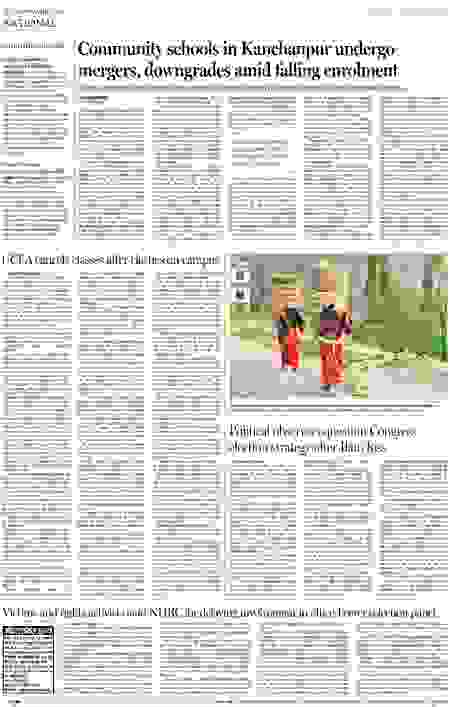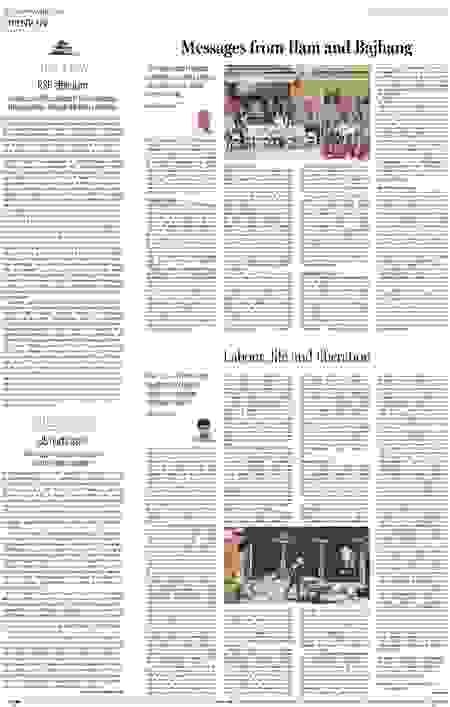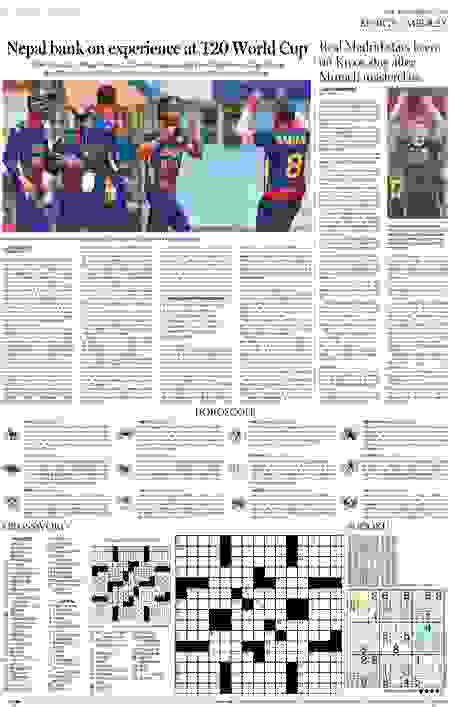NHRC to stay away from office-bearer nomination panel
KATHMANDU,
As demanded by victims and human rights defenders, the National Human Rights Commission has decided not to send its representatives to the committee constituted to nominate candidates for chairpersons and members of the two transitional justice bodies.
Bypassing the demand of conflict victims and rights advocates to amend the Enforced Disappearances Enquiry, Truth and Reconciliation Commission Act before starting the selection process, the government on April 12 constituted a five-member recommendation committee. Led by former chief justice Om Prakash Mishra, the panel includes the rights body chair or any member the chair picks.
However, a meeting of the constitutional rights watchdog on Tuesday decided not to send its representative unless the government makes a time-bound commitment to endorse an amendment bill, which is currently under discussion in a parliamentary committee.
“For around two years, the government said that the vacant positions would be filled once the Act is amended. We have sought a clear commitment from the government to amend the Act with a timeline before we send our representative,” Surya Dhungel, a member at the NHRC, told the Post. “Conflict victims and rights defenders have also been suggesting the same.” The commission has sent its decision to the Prime Minister’s Office.
A large section of conflict victims, backed by human rights advocates, had objected to the government’s decision to form the Mishra-led panel without first making any significant effort to endorse the bill. The Pushpa Kamal Dahal administration, however, said the recommendation panel was formed as per the Supreme Court’s January order, whose full text was issued after two months.
The court on March 12 had asked the government to start the appointment process in the two transitional justice bodies within a month.
Constitute task forces within the commissions to carry out preliminary investigations into the victims’ complaints until office bearers are appointed, it had said.
Following the court order, the victims and the human rights defenders had demanded the government and the parties endorse the bill to amend the Act by the top court’s deadline before starting the selection process.
However, the amendment bill couldn’t be endorsed within the deadline, prompting the government to form the committee based on existing laws. The victims and rights advocates had accused the government and the parties of wasting a month since the court’s ruling.
Following the government’s decision to form the Mishra-led panel, the victims and activists had requested the NHRC not to send its representative to the panel. The committee cannot commence its recommendation process until it has all five members. Along with the chairperson, three other members have been selected by the government.
“We are happy to learn about the human rights commission’s decision. The selection process shouldn’t begin before the Act is amended,” Gopal Shah, chairperson of the Conflict Victims’ National Network, told the Post. “No person with high integrity and competence will lead the commission under the existing Act.”
The Truth and Reconciliation Commission and the Commission of Investigation on Enforced Disappeared Persons have been without office-bearers since July 2022. The then Sher Bahadur Deuba government had decided not to extend the terms of the chairpersons and members of the commissions. It said new teams would be selected only after the endorsement of the amendment bill by October that year.
However, there has been little progress towards amending the Act. The major parties haven’t ironed out their differences over the bill registered in the House of Representatives by the incumbent government when the Nepali Congress was in the ruling alliance.
Deliberations on the amendment bill, which is currently at the Law, Human Rights and Justice Committee of the lower house, has stopped after the largest party was pushed to the opposition bench after the formation of the new alliance of the CPN (Maoist Centre) and the CPN-UML on March 4.
Until the new alliance was formed, the Maoist Centre and the Congress unanimously advocated the bill’s endorsement. They said the bill needed to be decided by a vote if the UML didn’t agree to it.
The two parties blamed the UML for politicising the matter and creating barriers to its endorsement. But with the changes in the political dynamics, the Congress has changed its voice. The party’s shift in position was visible at the March 3 meeting of the House committee where its lawmakers said some homework is needed before deciding on the bill.
The UML, which had been maintaining a tough stance on the bill, had shown flexibility at the meeting. However, the House committee ended inconclusively after then-minister for law and justice Dhanraj Gurung sought time for homework. The meeting called for the next day was postponed.
Prime Minister Dahal broke alliance with the Congress and joined hands with the UML on March 4.
Around two months later, it is still unclear when the discussion on the bill will resume in the House panel. “The bill is in priority but when the discussions will resume is still undecided,” said Bimala Subedi, the committee chair.









